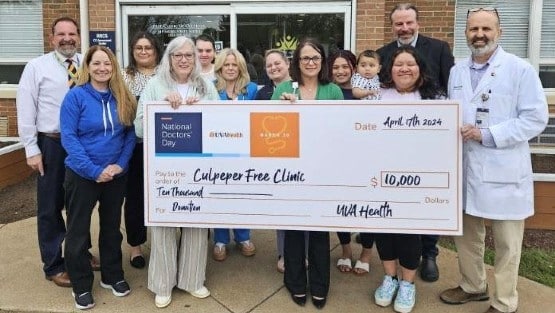
This was also the week when the House and the Senate debated the budget proposals released on Sunday. Each side approved their own version of the budget, which will go into conference. Senior members of the Senate Finance Committee and the House Appropriations Committee will spend the last two weeks of session working to resolve the differences before a final budget is approved and presented to the Governor.
The Senate version of the budget contains, as usual, the good, the bad, and the ugly. The good includes over $800 million in additional funding for K-12 over the biennium. This injection of funds accompanies a remake of high school in an effort to ensure our schools are preparing young people for the workforce or the next level of education. The Standards of Learning have been in place for over twenty years, and we have been changing them as the needs of our schools and our students have changed. There is no question that high standards should be demanded of our schools, teachers and students, but those standards must reflect reality. Students should not be learning to a formula or to operate in a world solely made up of multiple choice options. They need to learn how to solve problems through creative thinking and applying knowledge. The changes we have made to the SOLs and in the high school experience reflect this approach. The budget re-benchmarks K-12 funding for the first time since 2004.
That is not all that the Senate budget accomplishes. We add more than $223 million over the biennium to higher education, including investments in financial aid. The budget also includes funding for a modest pay increase for teachers, faculty at our institutions of higher learning, state employees, and state-supported local employees. The Governor included an increase for the second year of the budget, which we shift to the first year. Given this action, we have flexibility to perhaps beef up the increase during the second year.
The budget reflects a transformation of the Department of Juvenile Justice, reflecting changes in the youth offender population and innovations in addressing the needs of the population. We will ultimately be able to close both of our remaining state juvenile facilities and build a smaller one. This budget assumes we will close one of the facilities for now.
Of course, I would be remiss not to point out the continued investment in services for those with mental illness. The Senate budget increases funding for child psychiatry and crisis response, permanent supportive housing, and PACT teams. An interest of concern to many people in the mental health community was the language in the introduced budget to start the planning process for closing Catawba. The Senate plan eliminates this language and instead uses some of that funding to hire a consultant to evaluate and make recommendations for how to provide care to older Virginians with mental illness.
There are many other things in the budget that reflect the needs and priorities or our growing Commonwealth. All of that counts as the good. Because I believe that ultimately I can make more of a difference working from the inside, I voted for the bill even though it does have bad and ugly.
The bad, quite simply, is our continued refusal to expand Medicaid. Such expansion was assumed in the Governor’s introduced budget and freed up hundreds of millions of dollars for other priorities and brought home to Virginia about $1 billion that Virginians pay in taxes to the federal government. The funding would have provided health care to the working poor. The money would be spent in the health care field, boosting the bottom lines of hospitals across Virginia and increasing our health care workforce. The bulk of people eligible for Medicaid expansion are in Southside and Southwest Virginia.
The ugly in the budget, in my view, are those parts of the spending plan which ultimately benefit legislators. We increase per diem for meetings that occur outside of the regular session, extend insurance to additional legislative staff if the legislator does not utilize the insurance, and boost staff for leadership of the Senate. In the big picture, all of this only amounts to a tiny fraction of the spending plan. I voted against those amendments nonetheless, in part because I don’t think legislators ought to be fattening their own bottom lines.
The ultimate irony of the budget is the refusal to expand Medicaid expansion, health insurance for the working poor, but we provide insurance subsidized by the taxpayer to members of the legislature and our staff. Many people say that the budget must be a moral document that reflects the state’s priorities. While I don’t rise to speak often on the floor of the Senate, I did rise during the budget debate to point out this irony. We can and must do better.
It continues to be my high honor to serve you in the Virginia General Assembly. If I may be of service, do not hesitate to contact me. I can be reached at [email protected] or (804) 698-7525. I look forward to hearing from you.
Creigh Deeds is a member of the Virginia Senate.










